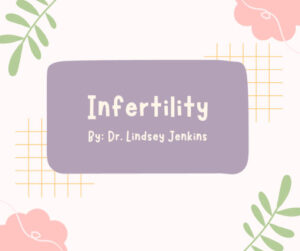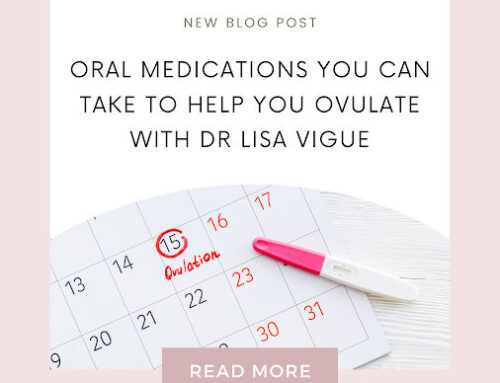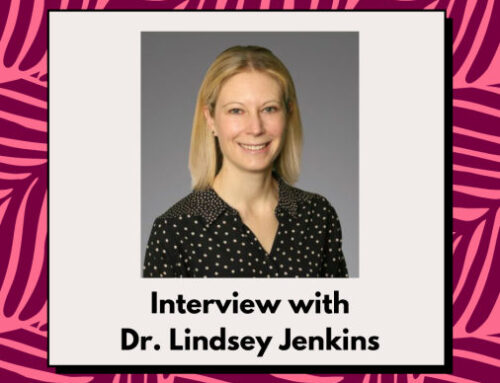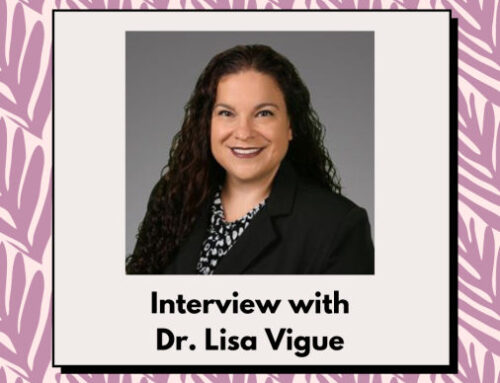 Hello! Dr. Jenkins here to discuss infertility. This is a topic that brings about a lot of stress and anxiety for many women. We spend much of our teens, 20s, and often early and mid-30s trying to prevent pregnancy. It is quite frustrating when we are ready and trying for pregnancy and it does not happen! First off, it is good to know that it can take up to a year of trying for pregnancy for it to occur. Most OBGYNs consider actively “trying” for pregnancy to mean you are tracking your periods and timing intercourse for the window of ovulation. There are now many apps available that can aid with tracking your cycle and predicting when you are ovulating. You can confirm the app is accurate by using ovulation predictor kits which are available over the counter in the pregnancy test aisle. The timing of intercourse is a critical component. The egg only survives for about 24 hours after ovulation, so the window is not big. Another point I like to make is sperm can live in the vagina for up to 7 days after ejaculation, therefore having sex before you expect to ovulate is a good idea. Infertility is defined as no pregnancy after 1 year of actively trying. At this point, it is a good idea to schedule an appointment with one of our providers to discuss any recommended testing or treatment options. In our clinic, we can provide a full workup for infertility as well as an initial treatment with oral medications which induce ovulation. If you are found to have infertility that is unexplained or the result of tubal disease, or if there is male factor infertility, we can guide you to specialists in Reproductive Endocrinology and Infertility. If you have very irregular periods, a history of pelvic infections, endometriosis, or surgery which could cause tubal damage, or if you have a history of infertility you may want to consider seeking evaluation sooner than the 1-year mark. I also recommend women who are 35 or older not wait the full year before coming in. All patients who are actively trying for pregnancy or who are not actively preventing pregnancy should be taking a prenatal vitamin. It is important to have the extra folic acid in your system before a pregnancy occurs to prevent neural tube defects like spina bifida. Lastly, it is important to know many insurances do not cover infertility testing or treatment or have very limited coverage. You should check your coverage in advance, so you are prepared for any out-of-pocket expenses. If you have any questions or concerns regarding attempting pregnancy, we encourage you to make an appointment! We offer preconception visits as well for any patient who has questions about trying for pregnancy or any concerns regarding pre-existing medical conditions and how they may be impacted by pregnancy.
Hello! Dr. Jenkins here to discuss infertility. This is a topic that brings about a lot of stress and anxiety for many women. We spend much of our teens, 20s, and often early and mid-30s trying to prevent pregnancy. It is quite frustrating when we are ready and trying for pregnancy and it does not happen! First off, it is good to know that it can take up to a year of trying for pregnancy for it to occur. Most OBGYNs consider actively “trying” for pregnancy to mean you are tracking your periods and timing intercourse for the window of ovulation. There are now many apps available that can aid with tracking your cycle and predicting when you are ovulating. You can confirm the app is accurate by using ovulation predictor kits which are available over the counter in the pregnancy test aisle. The timing of intercourse is a critical component. The egg only survives for about 24 hours after ovulation, so the window is not big. Another point I like to make is sperm can live in the vagina for up to 7 days after ejaculation, therefore having sex before you expect to ovulate is a good idea. Infertility is defined as no pregnancy after 1 year of actively trying. At this point, it is a good idea to schedule an appointment with one of our providers to discuss any recommended testing or treatment options. In our clinic, we can provide a full workup for infertility as well as an initial treatment with oral medications which induce ovulation. If you are found to have infertility that is unexplained or the result of tubal disease, or if there is male factor infertility, we can guide you to specialists in Reproductive Endocrinology and Infertility. If you have very irregular periods, a history of pelvic infections, endometriosis, or surgery which could cause tubal damage, or if you have a history of infertility you may want to consider seeking evaluation sooner than the 1-year mark. I also recommend women who are 35 or older not wait the full year before coming in. All patients who are actively trying for pregnancy or who are not actively preventing pregnancy should be taking a prenatal vitamin. It is important to have the extra folic acid in your system before a pregnancy occurs to prevent neural tube defects like spina bifida. Lastly, it is important to know many insurances do not cover infertility testing or treatment or have very limited coverage. You should check your coverage in advance, so you are prepared for any out-of-pocket expenses. If you have any questions or concerns regarding attempting pregnancy, we encourage you to make an appointment! We offer preconception visits as well for any patient who has questions about trying for pregnancy or any concerns regarding pre-existing medical conditions and how they may be impacted by pregnancy.
We are accepting new patients! To schedule an appointment with OBGYN Associates, call us at 515-288-3287.
DISCLAIMER: All information on this website is provided for informational purposes only and is not intended to be construed as medical advice. OBGYN Associates shall not be liable for any errors or inaccuracies contained herein, or any actions taken in reliance thereon.

Hello! Dr. Jenkins here to discuss infertility. This is a topic that brings about a lot of stress and anxiety for many women. We spend much of our teens, 20s, and often early and mid-30s trying to prevent pregnancy. It is quite frustrating when we are ready and trying for pregnancy and it does not happen! First off, it is good to know that it can take up to a year of trying for pregnancy for it to occur. Most OBGYNs consider actively “trying” for pregnancy to mean you are tracking your periods and timing intercourse for the window of ovulation. There are now many apps available that can aid with tracking your cycle and predicting when you are ovulating. You can confirm the app is accurate by using ovulation predictor kits which are available over the counter in the pregnancy test aisle. The timing of intercourse is a critical component. The egg only survives for about 24 hours after ovulation, so the window is not big. Another point I like to make is sperm can live in the vagina for up to 7 days after ejaculation, therefore having sex before you expect to ovulate is a good idea. Infertility is defined as no pregnancy after 1 year of actively trying. At this point, it is a good idea to schedule an appointment with one of our providers to discuss any recommended testing or treatment options. In our clinic, we can provide a full workup for infertility as well as an initial treatment with oral medications which induce ovulation. If you are found to have infertility that is unexplained or the result of tubal disease, or if there is male factor infertility, we can guide you to specialists in Reproductive Endocrinology and Infertility. If you have very irregular periods, a history of pelvic infections, endometriosis, or surgery which could cause tubal damage, or if you have a history of infertility you may want to consider seeking evaluation sooner than the 1-year mark. I also recommend women who are 35 or older not wait the full year before coming in. All patients who are actively trying for pregnancy or who are not actively preventing pregnancy should be taking a prenatal vitamin. It is important to have the extra folic acid in your system before a pregnancy occurs to prevent neural tube defects like spina bifida. Lastly, it is important to know many insurances do not cover infertility testing or treatment or have very limited coverage. You should check your coverage in advance, so you are prepared for any out-of-pocket expenses. If you have any questions or concerns regarding attempting pregnancy, we encourage you to make an appointment! We offer preconception visits as well for any patient who has questions about trying for pregnancy or any concerns regarding pre-existing medical conditions and how they may be impacted by pregnancy.
We are accepting new patients! To schedule an appointment with OBGYN Associates, call us at 515-288-3287.
DISCLAIMER: All information on this website is provided for informational purposes only and is not intended to be construed as medical advice. OBGYN Associates shall not be liable for any errors or inaccuracies contained herein, or any actions taken in reliance thereon.





Leave A Comment